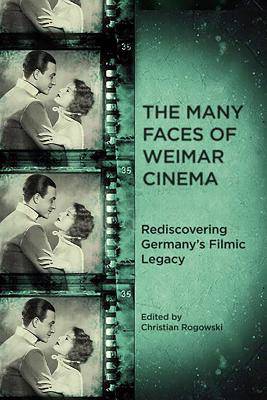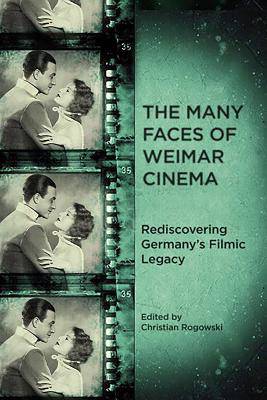
Bedankt voor het vertrouwen het afgelopen jaar! Om jou te bedanken bieden we GRATIS verzending (in België) aan op alles gedurende de hele maand januari.
- Afhalen na 1 uur in een winkel met voorraad
- In januari gratis thuislevering in België
- Ruim aanbod met 7 miljoen producten
Bedankt voor het vertrouwen het afgelopen jaar! Om jou te bedanken bieden we GRATIS verzending (in België) aan op alles gedurende de hele maand januari.
- Afhalen na 1 uur in een winkel met voorraad
- In januari gratis thuislevering in België
- Ruim aanbod met 7 miljoen producten
Zoeken
The Many Faces of Weimar Cinema
Rediscovering Germany's Filmic Legacy
€ 137,45
+ 274 punten
Omschrijving
Traditionally, Weimar cinema has been equated with the work of a handful of auteurist filmmakers and a limited number of canonical films. Often a single, limited phenomenon, "expressionist film," has been taken as synonymous with the cinema of the entire period. But in recent decades, such reductive assessments have been challenged by developments in film theory and archival research that highlight the tremendous richness and diversity of Weimar cinema. This widening of focus has brought attention to issues such as film as commodity; questions of technology and genre; transnational collaborations and national identity; effects of changes in socioeconomics and gender roles on film spectatorship; and connections between film and other arts and media. Such shifts have been accompanied by archival research that has made a cornucopia of new information available, now augmented by the increased availability of films from the period on DVD. This wealth of new source material calls for a re-evaluation of Weimar cinema that considers the legacies of lesser-known directors and producers, popular genres, experiments of the artistic avant-garde, and nonfiction films, all of which are aspects attended to by the essays in this volume. Contributors: Ofer Ashkenazi, Jaimey Fisher, Veronika Fuechtner, Joseph Garncarz, Barbara Hales, Anjeana Hans, Richard W. McCormick, Nancy P. Nenno, Elizabeth Otto, Mihaela Petrescu, Theodore F. Rippey, Christian Rogowski, Jill Smith, Philipp Stiasny, Chris Wahl, Cynthia Walk, Valerie Weinstein, Joel Westerdale. Christian Rogowski is Professor of German at Amherst College.
Specificaties
Betrokkenen
- Uitgeverij:
Inhoud
- Aantal bladzijden:
- 354
- Taal:
- Engels
- Reeks:
Eigenschappen
- Productcode (EAN):
- 9781571134295
- Verschijningsdatum:
- 15/06/2010
- Uitvoering:
- Hardcover
- Formaat:
- Genaaid
- Afmetingen:
- 155 mm x 231 mm
- Gewicht:
- 657 g

Alleen bij Standaard Boekhandel
+ 274 punten op je klantenkaart van Standaard Boekhandel
Beoordelingen
We publiceren alleen reviews die voldoen aan de voorwaarden voor reviews. Bekijk onze voorwaarden voor reviews.








